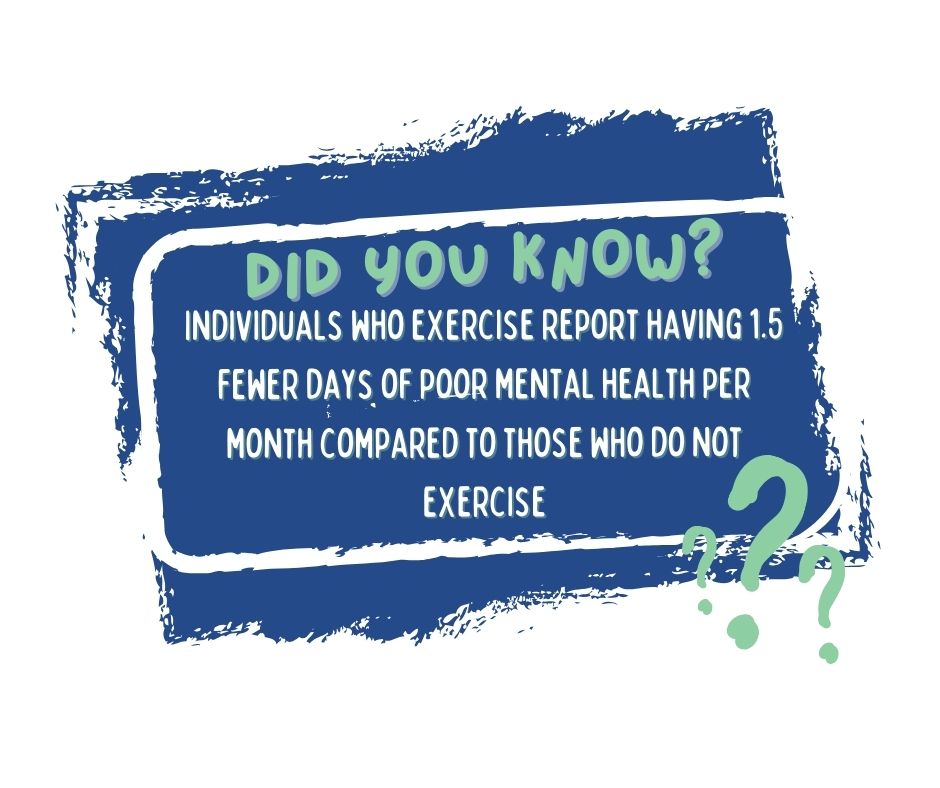How Does Exercise Improve Mental Health: Key Benefits Explained
How does exercise improve mental health? Exercise plays a crucial role in improving mental health through several mechanisms. Physical activity releases endorphins, which are chemicals in the brain that act as natural mood lifters. This simple activity can reduce stress, decrease feelings of anxiety, and improve overall well-being. By incorporating regular exercise into daily life, individuals can experience more energy and a greater sense of accomplishment.
One of the key ways exercise benefits mental health is by enhancing sleep patterns. People who regularly work out tend to fall asleep faster and enjoy deeper sleep. This helps rejuvenate the mind, making it easier to focus and handle daily tasks more effectively. Additionally, exercise can serve as a healthy distraction, allowing individuals to break away from negative thoughts or worries.
Exercise fosters a sense of community and belonging when done in group settings. Interacting with others during activities such as team sports or group fitness classes provides social support, which is essential for mental well-being. This social connection can alleviate feelings of loneliness, boost self-esteem, and help create a positive sense of identity.
The Science of Exercise Behind How Does Exercise Improve Mental Health
Exercise benefits mental health by impacting brain chemistry and reducing stress levels. These effects contribute to improved well-being and resilience.
Neurochemical Changes
Exercise triggers the release of several important chemicals in the brain. Endorphins are often released during physical activity. These chemicals enhance mood and can act as natural painkillers.
Serotonin and dopamine are also affected by exercise. Higher levels of these neurotransmitters help to balance emotions and can improve feelings of happiness and satisfaction. Regular physical activity can thus be a simple and effective way to influence brain chemistry positively.
Stress Reduction
Exercise is a well-known tool for reducing stress. When people engage in physical activities, the body reduces hormones linked to stress, like cortisol. This can help in calming the mind and relaxing the body.
In addition to chemical changes, exercise gives a mental break. Focusing on physical tasks allows people to escape daily worries. This mental shift can help in managing stress more effectively and promotes a sense of calmness and clarity.

Psychological Benefits of Regular Exercise
Regular exercise has significant mental health benefits. It can enhance mood, boost self-esteem, and improve cognitive function. These positive changes greatly contribute to one’s overall well-being.
Enhanced Mood
Physical activity stimulates the release of brain chemicals, such as endorphins, which help in reducing stress and anxiety. These chemicals are often called “feel-good” hormones. Regular exercise can contribute to lower levels of depression and anxiety over time.
For instance, studies show that even a brisk walk for 20 minutes can brighten someone’s mood significantly. Many find that maintaining a regular workout routine helps them feel happier and more relaxed.
Improved Self-Esteem
Consistent physical activity can boost self-esteem and self-worth. Achieving fitness goals and making progress can lead to a sense of accomplishment. As individuals notice improvements in their physical abilities or physical appearance, they often feel more confident in themselves.
Moreover, exercise can help people feel in control, granting a sense of structure which can be empowering. This sense of empowerment and better self-image are critical components of mental well-being.
Cognitive Function Enhancement
Exercise can have positive effects on the brain and its functions. Regular activity can aid in improving concentration, memory, and learning capabilities. Physical activity increases blood flow to the brain, which can help improve overall brain health.
In children, exercise can boost their cognitive development, while in adults, it can help delay the onset of cognitive decline. Activities such as aerobic exercises are particularly effective in promoting brain health, making it a cornerstone for maintaining cognitive abilities.
Types of Exercise for Mental Well-Being
Exercise is a powerful tool to boost mental health. Different forms of exercise have various benefits. Aerobic exercise lifts the mood and reduces stress. Strength training builds confidence and increases energy. Mind-body exercises improve focus and calm the mind.
Aerobic Exercises
Aerobic exercises include activities like running, cycling, and swimming. These exercises increase heart rate, which can boost mood by releasing endorphins, often called “feel-good” hormones. Regular aerobic activity helps reduce anxiety and depression symptoms. It also improves sleep quality, which is crucial for mental health.
Short, regular sessions of about 30 minutes a day provide significant mental health benefits. Activities can be done indoors or outdoors, offering flexibility and variety. This makes aerobic exercises accessible to many people, enhancing their willingness to start and stick with an exercise routine.
Strength Training
Strength training involves lifting weights or using resistance bands. It helps improve physical strength and body image, which can boost self-esteem. These exercises increase energy levels and decrease stress through the repeated effort and concentration needed for each session.
Strength training sessions are typically short, often 20 to 30 minutes, and can be adapted to different fitness levels. Practicing strength exercises regularly also contributes to a sense of achievement, improving confidence over time. The focus on breathing and movement brings a meditative aspect, which can further enhance mental calmness.
Mind-Body Exercises
Mind-body exercises encompass activities like yoga, tai chi, and Pilates. These exercises focus on motion, breathing, and mindfulness, promoting relaxation and mental clarity. Regular practice helps reduce stress and anxiety by teaching the mind to focus on the present moment.
Mind-body exercises foster a deeper mind-body connection, enhancing self-awareness. Classes or solo sessions emphasize breath control, which lowers stress levels. Participants often report feeling rejuvenated and centered after their practice. This type of exercise can be practiced by people at any fitness level and encourages a holistic approach to health.
Frequently Asked Questions Related to How Does Exercise Improve Mental Health
Exercise boosts mental health by enhancing mood, reducing stress, and supporting emotional balance. It helps to combat anxiety and depression effectively.
What are the psychological benefits of regular physical activity?
Regular exercise increases the release of endorphins, often called “feel-good” hormones. This can improve mood and boost feelings of happiness and satisfaction. Physical activity also helps build resilience against stress.
In what ways can physical exercise alleviate symptoms of depression and anxiety?
Exercise can lower levels of stress hormones like adrenaline and cortisol. Physical activity also promotes the growth of new brain cells and connections, which can improve mood and energy levels. It provides a natural way to combat anxiety and depressive symptoms.
How does physical activity influence stress levels and emotional well-being?
Exercise helps reduce stress by increasing the production of endorphins. This can lead to a more relaxed and positive state of mind. It also improves sleep quality, which is essential for emotional well-being.
Why is exercise considered beneficial for mental health maintenance and recovery?
Physical activity provides a healthy outlet for releasing built-up stress and tension. It encourages healthier lifestyle choices and self-discipline, which are important for maintaining stable mental health.
Can regular workouts have a positive impact on mood disorders?
Yes, regular workouts have been shown to help manage mood disorders. Exercise can stabilize mood swings and promote a more balanced emotional state. It serves as an additional tool alongside other treatment methods.
What mental health advantages can be observed from consistent exercise regimes?
Consistent exercise can enhance cognitive functions and memory. It fosters better concentration and alertness, allowing for improved mental performance. Exercise creates a positive feedback loop that supports ongoing mental health improvement.
You’re not alone, and help is always within reach. Contact us today at (774) 619-7750 and take control of your mental health.




